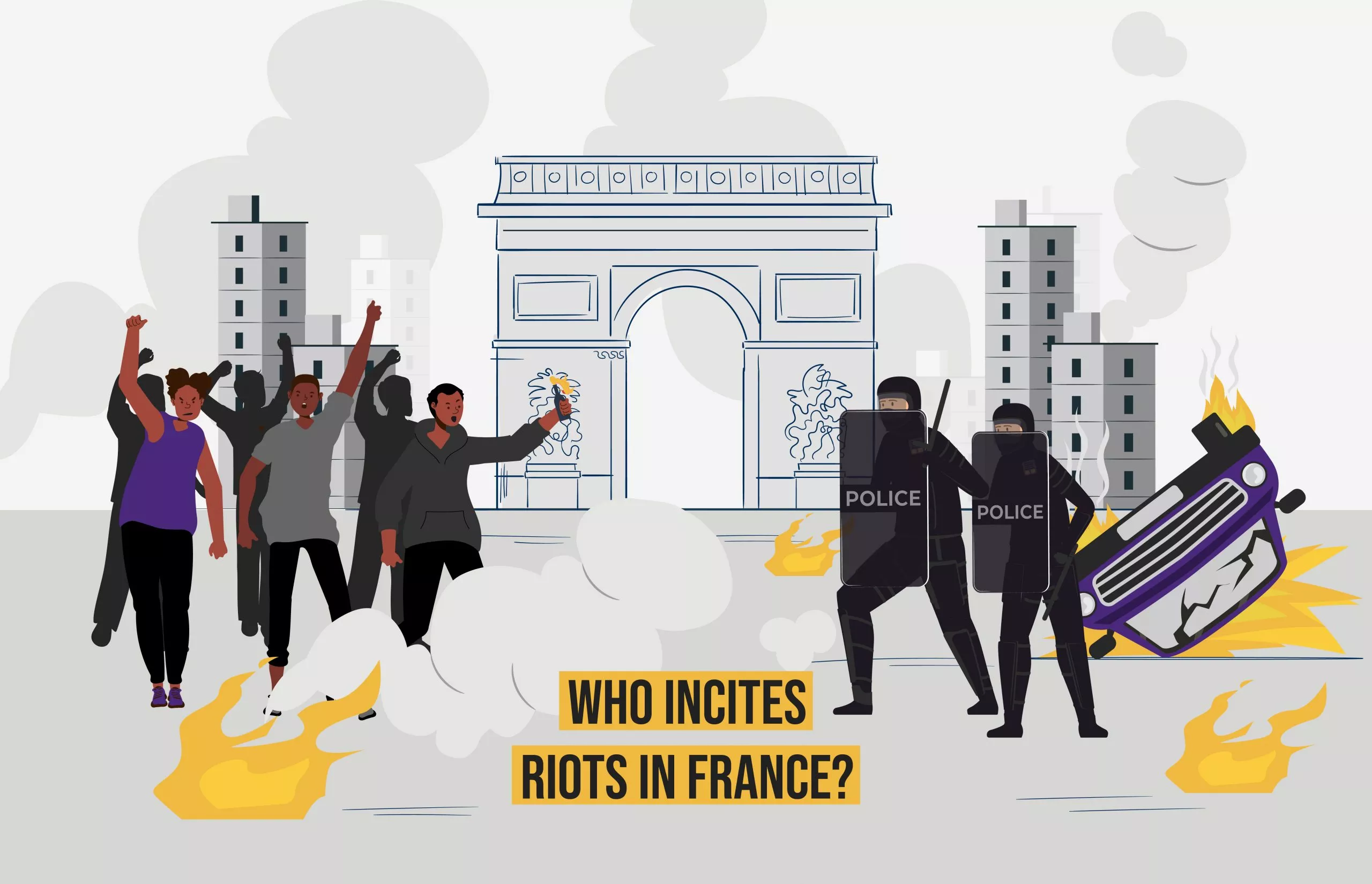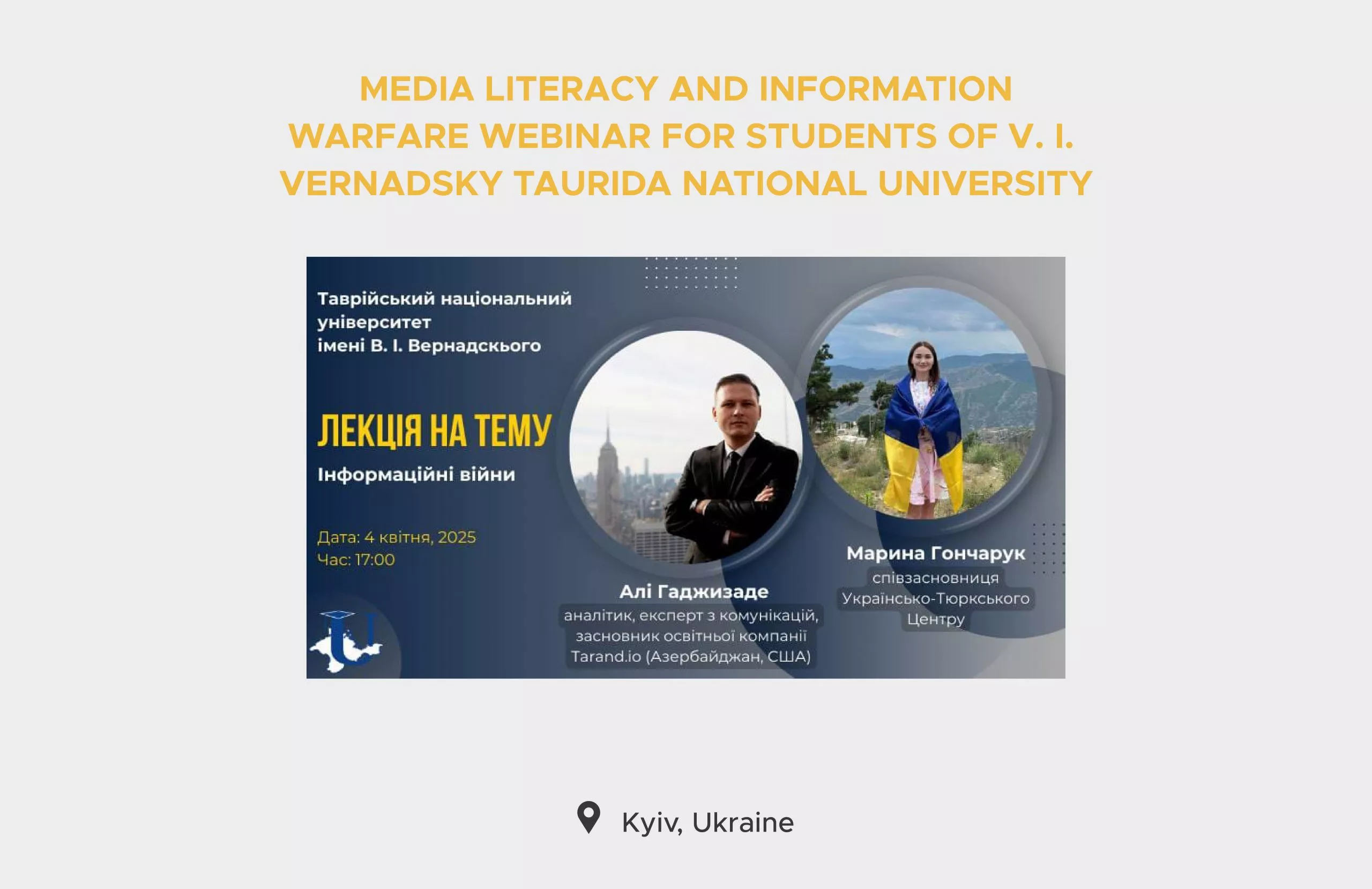Violent riots have swept across France since June 27, after the police shot and killed a teenager of Algerian and Moroccan descent in the Paris suburb of Nanterre.
Images of torching, looting, and clashing between protestors and the police in the streets of French cities quickly spread over social media and the world media.
A group of Tarand experts, with the assistance of volunteers, conducted a brief social networks content analysis, with a particular focus on Twitter.
Our analysis showed the existence of a specific group of accounts that distribute content (textual and graphic) of a racist and xenophobic nature, aimed on the one hand at inciting anti-immigrant and anti-Muslim sentiments and on the other at inciting anti-French, anti-Christian and anti-European sentiments. Overall, there are about 250-300 such accounts, which, however, are very active.
Some of them use hashtags such as #FranceOnFire, #FranceHasFallen, and #FranceRiots to increase virality and reach.
Although Twitter claims to be persistently taking down fake accounts and bots, in reality, vast networks of fake accounts and bots continue to exist and actively use this social network.
Hatred-inciting tweets are predominantly created in French and English, but we also came across tweets in Spanish, Greek, Arabic, Bulgarian and Russian.
Posting a huge number of aggressive tweets and replies in a short period of time creates a firehose of falsehood effect, which in turn increases the virality of the narratives spread by such methods. This works highly effectively in situations such as the current one in France.
Against this background, Russia also shows exceptional activity. For example, former Russian President Dmitry Medvedev tweeted in French criticizing Macron.

Russian media, state-affiliated journalists, and so-called experts show much zeal in covering events in France.
For example, Natalia Oss, a Russian journalist known for her anti-Western rhetoric, stated in a post on her Telegram channel that Russian sleeper cells should help the French people because a civil war in France is beneficial to Russia. Natalia Oss, in fact, expressed the common opinion of the Russian propagandists.
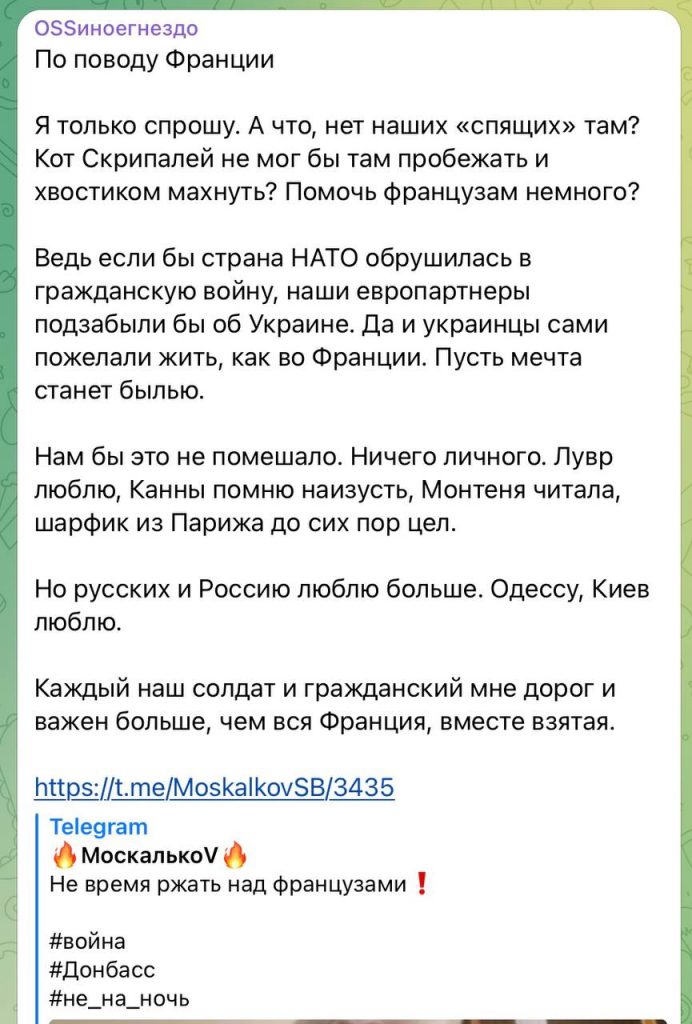
We should also not overlook the conflict between Paris and Moscow in Africa, in particular, in the Central African Republic, where the two sides, among other things, wage an active information war against each other. Russian Malicious Information Activity did not bypass France. Although certainly to a lesser magnitude than against the United States, but Russian intelligence services and private entities, including the troll factories founded and run by Yevgeny Prigozhin, conduct various information operations against France and its interests in Africa.
In 2021, France created a special organization called Viginum to combat foreign disinformation, propaganda, and malicious information impact. In 2023, the organization issued a report on the Russian Malicious Information Activity.
In the report, the French experts discussed the narratives spread by the Russian propaganda and disinformation in and against France, as well as Moscow’s operation methods.
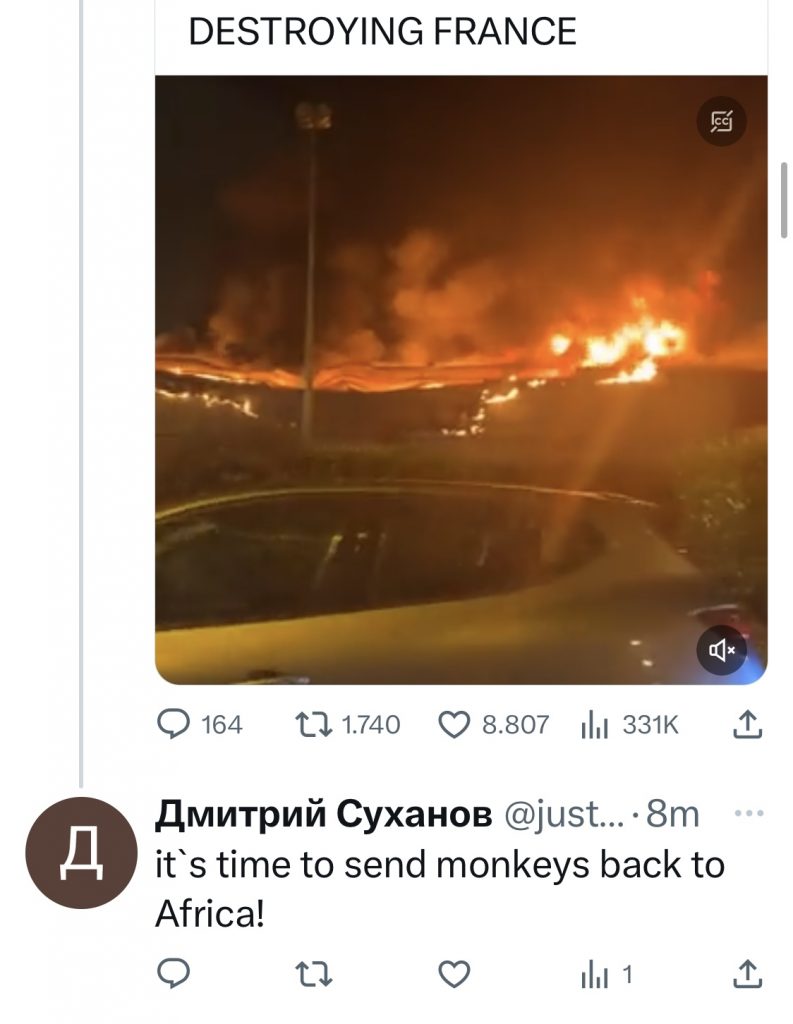
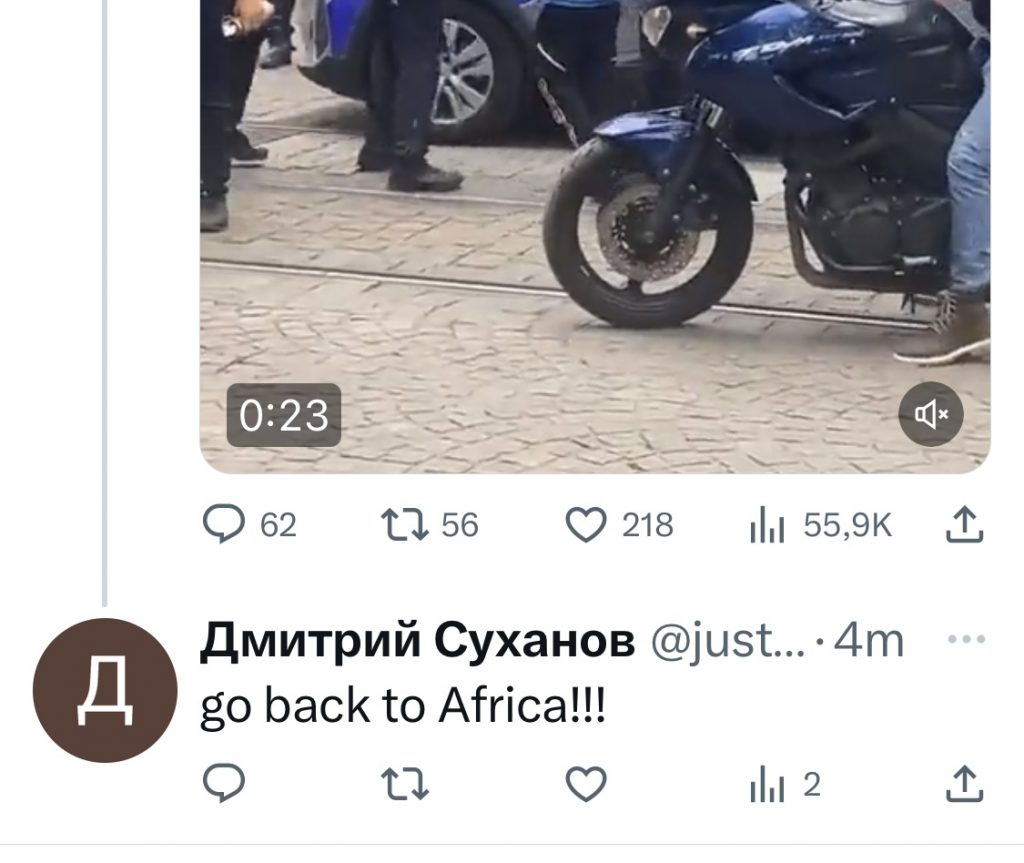

We came to an overall conclusion that there is a serious and comprehensive attempt to manipulate information in social media in order to further escalate the unrest in France, and this requires more rigorous and detailed research.

